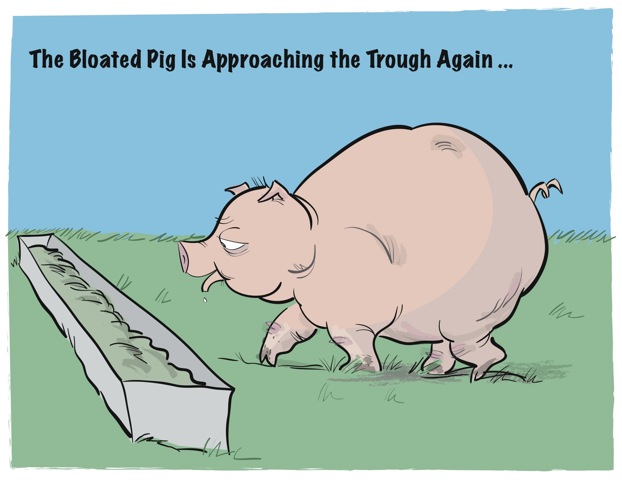The Best Movie You Haven’t Heard Of: Inside Job
 Here are the ratings (% who liked) from Flixster for some of the movies playing this weekend:
Here are the ratings (% who liked) from Flixster for some of the movies playing this weekend:
90% The Social Network
88% Inside Job
81% Unstoppable
78% MegaMind
78% Jackass 3-D
77% Red
75% Skyline
65% Due Date
65% Morning Glory
64% The Next Three Days
54% Saw 3D
You know The Social Network. But how about the #2 movie, Inside Job? Ever hear of it?
96% of the critics liked it. Rotten Tomatoes rated it 96%. It’s narrated by Matt Damon. Feeling out of the loop yet? Why haven’t you heard of this movie?
More on obscurity later, but here’s the official synopsis:
‘Inside Job’ is the first film to provide a comprehensive analysis of the global financial crisis of 2008, which at a cost over $20 trillion, caused… ‘Inside Job’ is the first film to provide a comprehensive analysis of the global financial crisis of 2008, which at a cost over $20 trillion, caused millions of people to lose their jobs and homes in the worst recession since the Great Depression, and nearly resulted in a global financial collapse.
Through exhaustive research and extensive interviews with key financial insiders, politicians, journalists, and academics, the film traces the rise of a rogue industry which has corrupted politics, regulation, and academia. It was made on location in the United States, Iceland, England, France, Singapore, and China.
There has been no shortage of books and articles about the meltdown. But most of those have had a reporter’s flavor to them—here’s what happened, then here’s what happened next. I felt that no one had really pulled it together with a narrative theme and the data to back it up. Until this weekend, that is.
The theme is now clear. Bad things happened. They were not an accident. They were the results of bad people behaving badly. They knew what they were doing. They did them anyway. And to this day, they refuse to acknowledge responsibility. The issues of trust that became so manifest were not just about systems and markets; they were inescapably about people as well. It’s one thing not to trust a system; it’s yet another to not trust those who inhabit it.
Think of this movie as what Michael Moore would produce if he had a PhD in economics and a career as a Federal Prosecutor. It’s the project of Charles Ferguson, who in fact does have a PhD in political science from MIT (he has also consulted to the White House and the Department of Defense, was a Senior Fellow at Brookings, and a member of the Council on Foreign Relations).
You may know Ferguson as the director of No End in Sight, a powerful documentary about the Iraq war. He’s confident enough to interrupt an economist and say, ‘You can’t be serious about that. If you would have looked, you would have found things.’ Or to tell a former Bush administration under-secretary of the Treasury, “Forgive me, but that’s clearly not true.”
Here is a review by A.O. Scott, in the New York Times.
Boston.com calls it “a masterpiece of investigative nonfiction moviemaking — a scathing, outrageous, depressing, comical, horrifying report on what and who brought on the crisis.
Here’s Kenneth Turan’s review in the LA Times.
Go see for yourself; see the trailer here.
The Role of Ideology in the Meltdown
There’s much to say about this documentary; I’ll limit my thoughts to just one—the role of ideas in the meltdown.
In this day and age of neuro-explanations and insistence that only measurable behavior is relevant for management, the role of ideas gets pooh-poohed. Big mistake.
I’ve written before about the power of strategic doctrine taught in business schools to negatively influence our general business thinking. But after seeing this documentary, I’m newly persuaded. Ideas have huge power: especially when those ideas happen to greatly serve the economic interests of patrons.
In the pharmaceutical industry, it’s become well accepted that a researcher or writer who takes money from a drug company is at the very least subject to rules of disclosure. Failure to do so constitutes an immediate presumption of conflict of interest.
Yet somehow, we have never held our nation’s leading economists and business school faculty to the same standards. One of the most eye-opening aspects of Inside Job for me was to put this issue front and center.
Some of Fergusons’ hardest-hitting interviews are with the elite heads of academic institutions: Frederic Mishkin, a former Fed governor, now at Columbia Business School; his boss Glenn Hubbard, chairman of the Council of Economic Advisers under George W. Bush; John Campbell, Harvard’s economics department chairman; and fellow Harvard economist Martin Feldstein.
They come off, respectively, as incompetent, blustering, inarticulate, and smug. None of them seem to have noticed a disconnect between their laissez-faire ideas and the disasters engineered by those who quoted them; much less any sense of impropriety at the comfortable financial relationships they shared with those very firms.
Somewhere there is a researcher at Harvard Medical School screaming at the injustice of his not being published in NEJM because of some disclosure requirements, while his academic counterparts in business and economics were happily and openly opining on the health of the Icelandic banking system and the liquidity of the US subprime mortgage market, all the while getting very well paid. (Note: b-school profs provide functional consulting services to companies all the time; I don’t see that as an issue. This is vastly different; more another time).
Results of the Meltdown
Ferguson touches clearly, albeit briefly, on one enduring outcome of this decades-long debacle–the increased gap in the US between the haves and the have-nots.
In 1976, the richest 1% of Americans had 9% of the income. Now they have 24%. From 1980 to 2005, 80% of the gain in income went to the top 1%. Guess what industry disproportionately accounts for that gain?
But the most significant casualty, I think, is a great old American belief: the belief that you can make it here in the good old USA, land of opportunity, where anyone can be what they want. You don’t have to be limited by the circumstances of your birth, like in all those Old World countries.
Sorry: no longer true. By one study, it is harder for someone to get ahead now in the US than it is in Denmark, Australia, Norway, Finland, Canada, Sweden, Germany, Spain, and even France. Only Italy and the UK are more class-bound, and I’ve seen other studies where even the Brits are less class-bound than we are. That decline in opportunity is another result of greater income disparity. Again, one of the legacies of the financial industry. One trust expert states very clearly that a key driver of low trust is high income inequality. And here’s a good explanation of just why that is true.
You may disagree with a lot of what I’ve said here. You may think this movie won’t change your mind; and since it’s extremely hard to change people’s minds, you may be right. But if so, may I suggest you owe it to yourself to see it—if only to write back and point out the flaws in the movie.

 There’s a lot of buzz about "trust" this year.
There’s a lot of buzz about "trust" this year. The Army-McCarthy Hearings
The Army-McCarthy Hearings